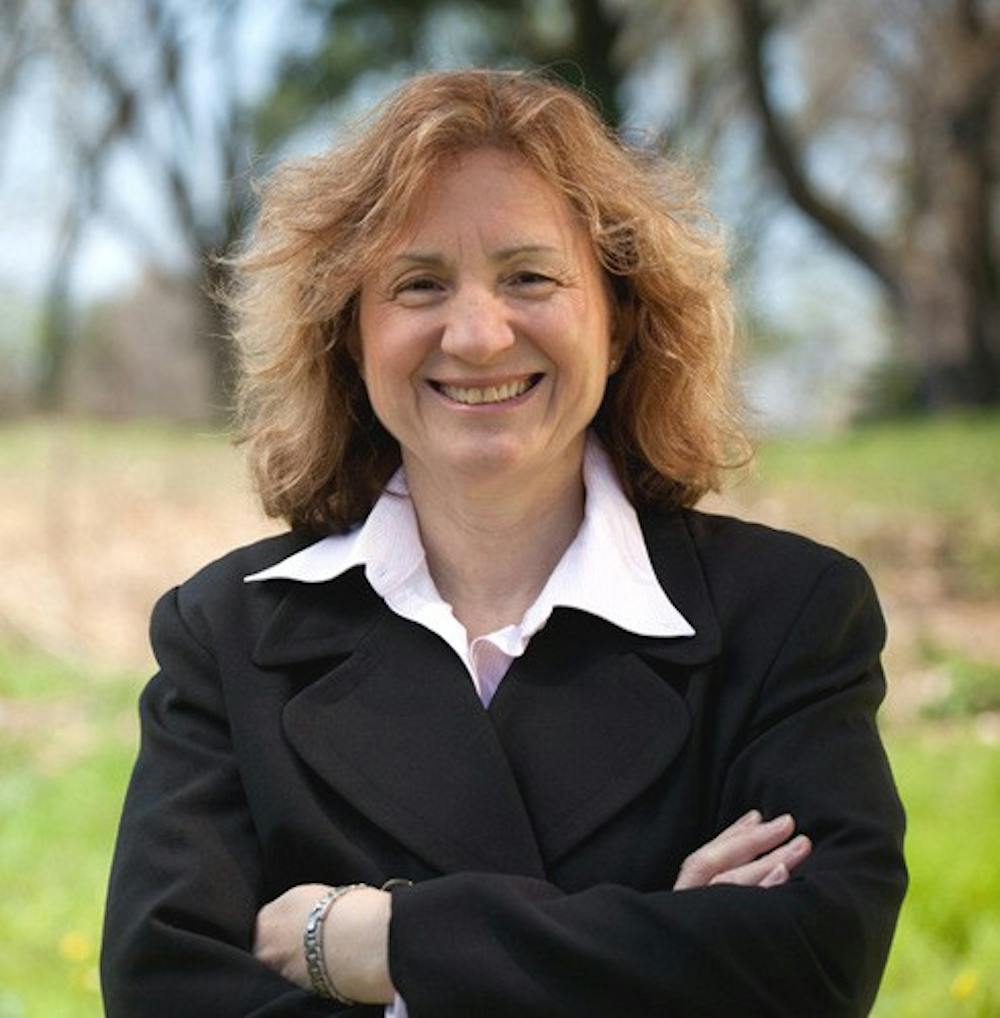If you ask City Council candidate and 1975 College graduate Sherrie Cohen what makes her different from the other candidates, don't expect her to limit her answer to a single issue.
“I act in solidarity with people looking for criminal justice reform, working families, feminist issues, LGBT issues [and] poverty issues,” she said. Her only guide, she said, is to put the people with the greatest need first. Cohen has championed issues from greater support for libraries and access to affordable housing to issues more personal to her.
Cohen is one of two openly gay candidates in the City Council race, among fourteen Democratic candidates vying for an open at-large seat on City Council. While the city's Democratic party has allied itself with LGBT causes, Philadelphia has yet to welcome its own LGBT-affiliated politician. If either she or Paul Steinke, another Democratic challenger, wins the Council seat, they will make history in Philadelphia.
Cohen and Steinke's candidacies reflect shifts in cultural attitudes, according to local history expert and St. Joseph’s University Professor Randall Miller.“There are two openly gay candidates for City Council. Twenty years ago, that would have been unthinkable,” he said.
Despite no direct representation in city government, the LGBT community in Philadelphia “has gotten politically active and politically astute,” Miller said.
“It would be a surprise if we didn’t have [members of the LGBT community] running for public office given the sophistication and activism in the gay community,” he added.
All five at-large seats are up for grabs in May’s election, though the four incumbents are expected to retain their seats. One seat opened after mayoral candidate Jim Kenney resigned from his position in February because of Philadelphia’s “resign-to-run” rule for public officials.
Cohen's unique brand of social and political activism comes from being in a family of “movement people,” who taught her to embrace protest and activism as political tools, she said. “My parents started as labor organizers in the '30s and '40s when labor was very militant," she explained. "They became activists in the Civil Rights Movement and taught [me] to be involved in all of these movements."
Her father, David Cohen, served on Philadelphia's City Council for 29 years. During his time on the Council, he kept labor issues at the forefront of the political agenda.
“I would see my parents year after year staying the course [of activism],” Cohen said. As an undergraduate student at Penn in the 1970s, Cohen began to follow her parents’ lead.
While at Penn, Cohen participated in monthly marches against the Vietnam War and, as co-chair of the Community Involvement Council, worked to make sure the University provided affordable housing.
On one occasion, her group tried to prevent Penn from displacing local residents through the building of a hotel near campus. Cohen and her fellow students got a temporary injunction to stop Penn from building the hotel, but eventually the University got its way.
“Our point was that [Penn was] reneging on [its] promise to support affordable housing financially in the neighborhood,” Cohen said of the injunction’s purpose.
Her activism also extended to social issues, especially with regard to women’s rights.
When Cohen was a sophomore at Penn in the spring of 1973, a string of sexual assaults occurred on campus. Cohen recalled them occurring “in the middle of the day,” with the victims “not knowing where to go” for help.
“There were no rape crisis counseling centers on campus,” Cohen said. “They went to the Penn Hospital, but felt that there wasn’t enough sensitivity provided to them.”
On the heels of these assaults, famed feminist speaker Robin Morgan came to campus to speak. With Morgan’s lead, Cohen and “hundreds of women walked over to Houston Hall and had a 10-day sit-in,” Cohen recalled. They demanded the establishment of a rape crisis counselor, a Women’s Center and women’s studies major.
“In those 10 days, the University agreed [to those demands],” Cohen said. For years after, “there were implementation committees that were very inclusive of female staff and students.”
Cohen recently attended the 40th anniversary of the Penn Women’s Center and still remembers her time at Penn as a formative period.
Cohen now works as an attorney with the Tenant Union Representative Network, where she “represents vulnerable tenants against slum landlords,” according to her website. Cohen had previously run for City Council in 2011 and came in sixth place in a race for five seats.
This time, Cohen has some added political clout on her side. On Saturday, Philadelphia’s Democratic City Committee chairman Bob Brady announced his support for Cohen’s candidacy. While a formal endorsement from the City Committee won’t come until later in April, Brady’s support is hugely significant in Philadelphia’s political landscape.
Brady’s support certainly reflects Cohen’s potential for electoral success, but also an awareness of her existent pedigree. Brady “knows how political winds blow,” Miller, the St. Joseph's professor, said.
Such a major endorsement “adds to her appeal in terms of getting other support, [whether it be] financial or other endorsements,” Miller added.
Despite greater support from the party, she still faces stiff competition in education leader and fellow Penn alumna Helen Gym and the well-funded Steinke.
On her tendency for activism, Cohen said, “You feel that spirit move through you, and you want to be on the right side of history.”
The coming election will decide whether history will embrace Sherrie Cohen.









